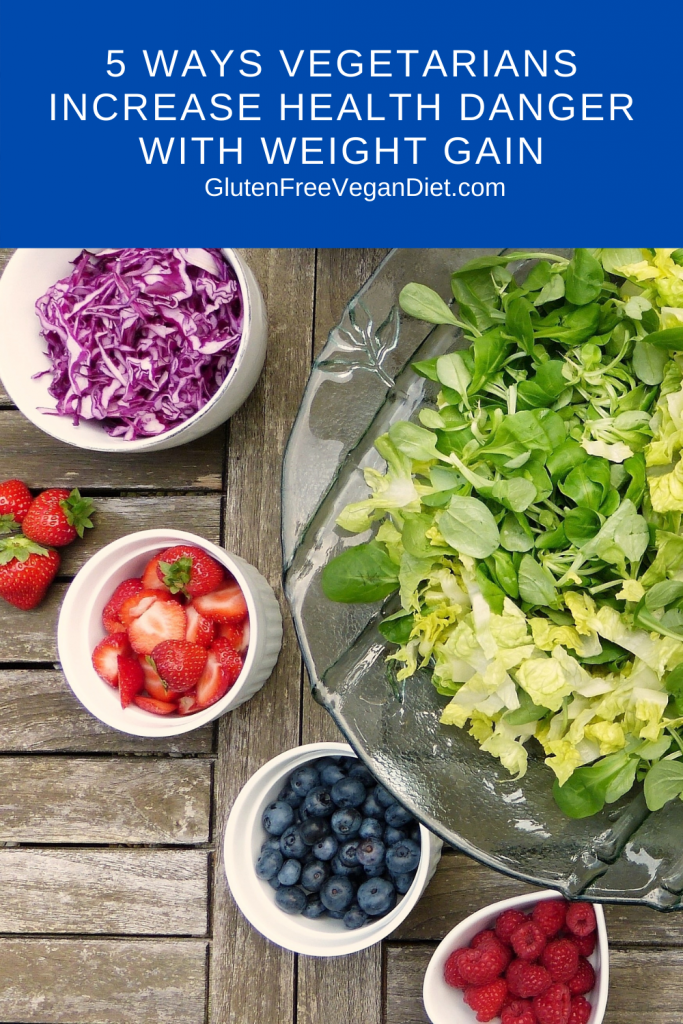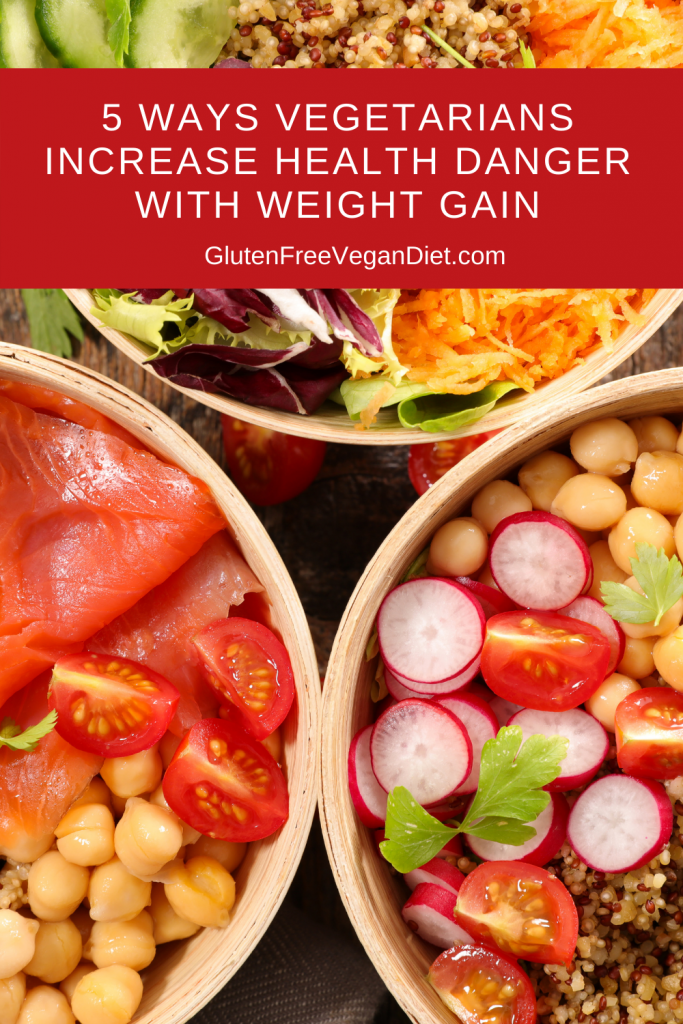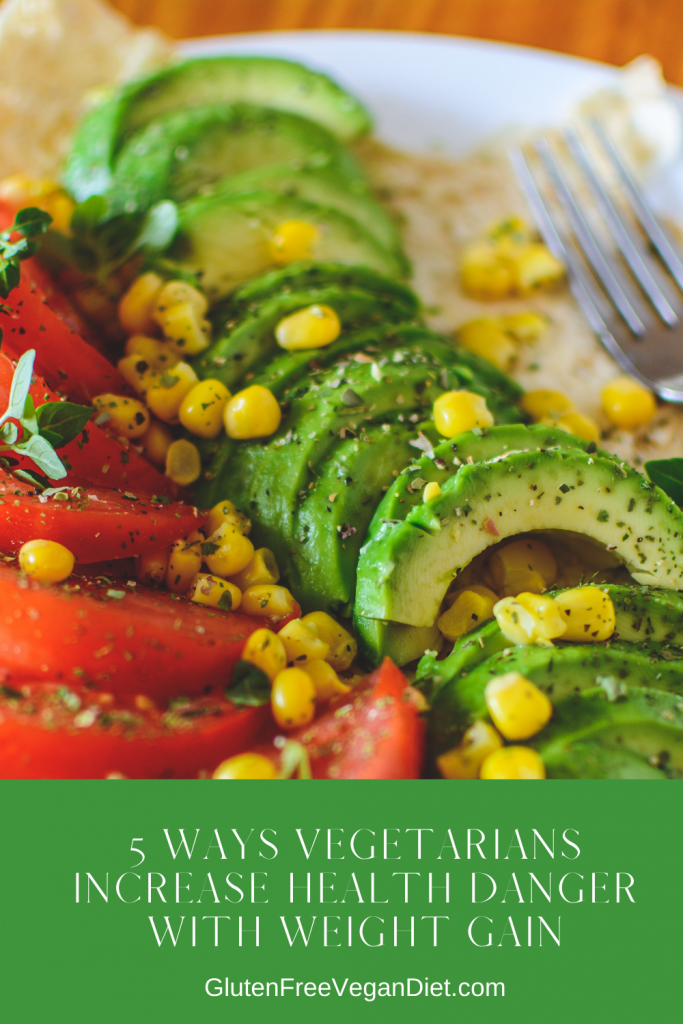It is common knowledge that a vegetarian or vegan diet has the potential to be a healthy diet. We see proof of this daily, and we know that vegetable sources of protein, fat, and fiber, verses meat, are super healthy for us.
Studies have also shown that diets high in fiber mixed with plenty of healthy vegetables can improve your weight for those looking to maintain weight or even get rid of a few pounds.
For some of us, however, falling into a cycle of weight gain can still be a problem, even when following a vegetarian or vegan diet.
There is a reason for that as there are actually several hidden traps to be aware that cause unwanted weight gain for many vegetarians and vegans.

For example, the following are a few to be aware of:
• Accidentally eating added Sugar (or not paying attention to it)
• Relying on processed foods instead of cooking homemade meals
• Not properly balancing macros
• Larger portion sizes
• Eating too much of convenience foods
In today’s world of convenience it’s much easier to grab prepared food from the frozen section, like that Michael Angelo’s Vegetarian Lasagna or Digiorno Pizza. It is easy after all to wait 15 -30 minutes in the microwave or oven than spend time making something from scratch.
Just pull it out of the freezer when you get home, pop it in the oven, run to the bedroom and change into your sweats, get the kids through their homework, and maybe set the table. By then, your processed lasagna is ready. All you had to do was reach in the freezer.
There’s a problem though, and this covers at least three of the traps mentioned above.
#1 Did you happen to notice how many grams of added sugars there are in each serving? That number on your Nutrition Facts label isn’t the overall amount by the package. It’s by serving size. If you take a few minutes to look at that when buying that item in the store, you might just put it back.
Don’t even get me started on the Sodium levels in the item you plan to eat.
#2. What kind of fats were added to that easy to cook meal? Are they healthy fats? Probably not.
Processed foods like those frozen lasagnas, vegan ice cream, or vegetarian friendly cakes often contain preservatives and fats to keep them stable during storage for longer periods of time. Just because something isn’t so detrimental to your health that it becomes a concern for the FDA doesn’t mean it’s healthy.

Pastas, like those which are in these frozen processed foods are usually prepared with, are easy to eat in short time spans. Your body doesn’t have an immediate response to your fullness level when you eat carbs and burn glucose. There is a delayed reaction of anywhere from 20 minutes to half an hour. It takes less than that to overeat on foods like pasta.
Many processed foods like pastas are super easy to eat in large portions which makes it very easy to over eat in portion size. The other part of understanding portions is understanding serving sizes and nutrition facts on labels.
Nutrition facts on labels is partially changing so that foods have to include the total count of calories, fats, protein, and carbs in the whole package. In the meantime, however, it’s important to pay attention to your portion and serving sizes so you don’t end up overeating without knowing it.
#3 Macros: While we’re talking about Protein, Carbohydrates, Fats, and Calories, let’s talk about macro balances. This is probably the biggest trap for vegetarians. Understanding how many of your calories need to come from fat, protein, and carbs is important.
It doesn’t matter if you’re a glucose burning vegan, or maybe a Ketogenic Vegetarian, you have to know the macros for which you’re aiming, and then measure and balance out what you eat. Either way, eating too much protein is a good way to gain weight under the wrong conditions and most people are not hoping to do that.
If you are a vegetarian relying on meat substitutes, or maybe beans, to get adequate complete proteins, you should track what you consume.
Basically, it’s easy to fall into bad and unhealthy eating habits as a vegetarian as it is in any other diet pattern.

Bottom line: Your success will come down to understanding what you’re eating, how much you need to eat, and staying away from added sugars and preservatives in processed foods and sticking with fresh fruits and vegetables.

